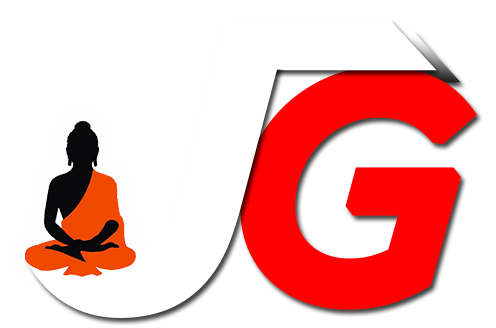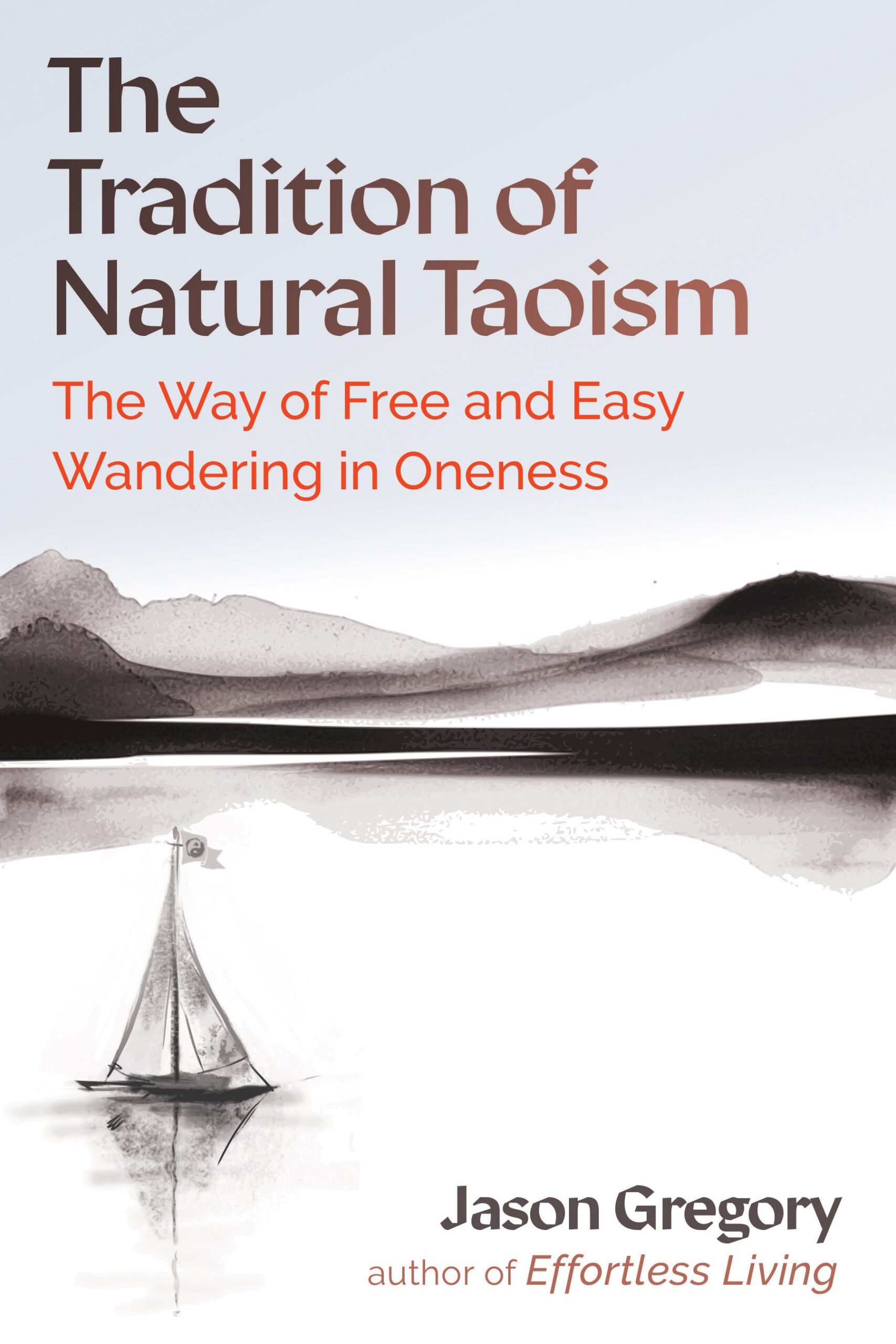The Universal Dance of Yin and Yang
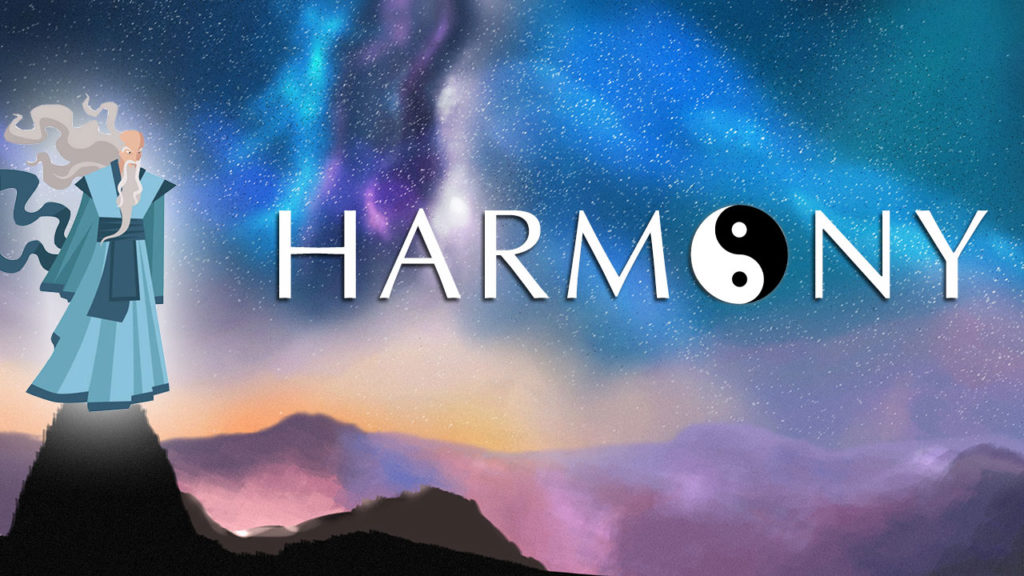
Yin and Yang are at the core of Taoist philosophy. The challenge for a human being is finding balance between both Yin and Yang so that we can come into harmony with the Tao, the irreducible essence of both cosmic forces. But the world that we live in now runs counter to the fundamental balance of Yin and Yang both collectively and individually. The great work for all of us is to bring that balance back into our lives so that collectively we will live in a world of harmony. NOTE: This site directs people to Amazon and is an Amazon Associate member. As an Amazon Associate I earn from qualifying purchases, at no additional cost to you. The pages on this website may contain affiliate links, which means I may receive a commission if you click a link and purchase something that I have recommended. This goes a tiny way towards defraying the costs of maintaining this site.
The Nature of the Soul in Taoism, Buddhism, and Hinduism
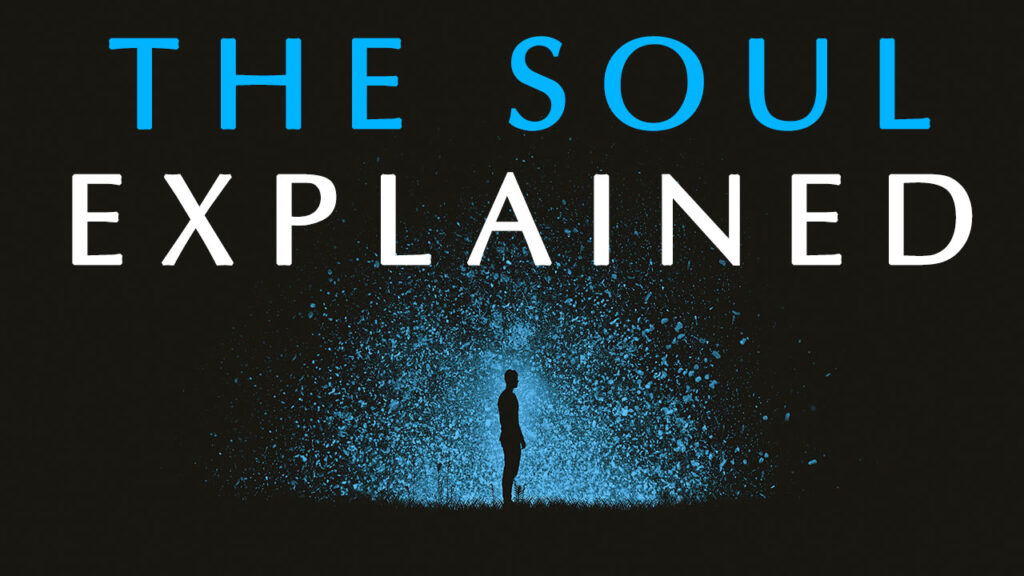
In this podcast, we will explore the nature of the soul in Eastern spirituality. It is a far more complex theory than that of Western philosophy and religions. The Eastern view of the soul is grounded in a scientific understanding of the our mind-body relationship to consciousness. This Eastern perspective gives us clarity on the nature of reincarnation and if in fact an actual individual soul really exists. NOTE: This site directs people to Amazon and is an Amazon Associate member. As an Amazon Associate I earn from qualifying purchases, at no additional cost to you. The pages on this website may contain affiliate links, which means I may receive a commission if you click a link and purchase something that I have recommended. This goes a tiny way towards defraying the costs of maintaining this site.
How the Nondual Paths of Taoism and Vedanta are Related to the Dualistic Paths of Yoga and Samkhya
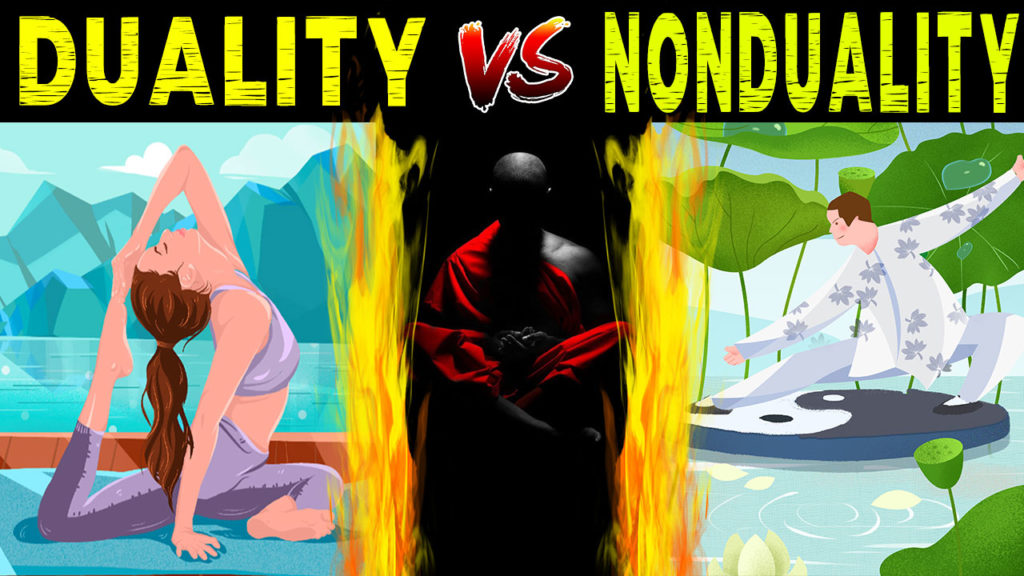
The differences between the nondual paths of Taoism and Vedanta and the dualistic paths of Yoga and Samkhya are many. But both nondual and dual paths are reconciled in their foundation of experience which is interpreted differently according to each overarching philosophy. In this Ask Jason video, I will answer a question in regards to the fundamental similarities that reconcile the differences, showing that at the core of even dualistic systems such as Yoga and Samkhya, there is a nondual basis that one cannot ignore. NOTE: This site directs people to Amazon and is an Amazon Associate member. As an Amazon Associate I earn from qualifying purchases, at no additional cost to you. The pages on this website may contain affiliate links, which means I may receive a commission if you click a link and purchase something that I have recommended. This goes a tiny way towards defraying the costs of maintaining this site.
Understanding the Mind of the Sage in Taoism, Buddhism, and Hinduism
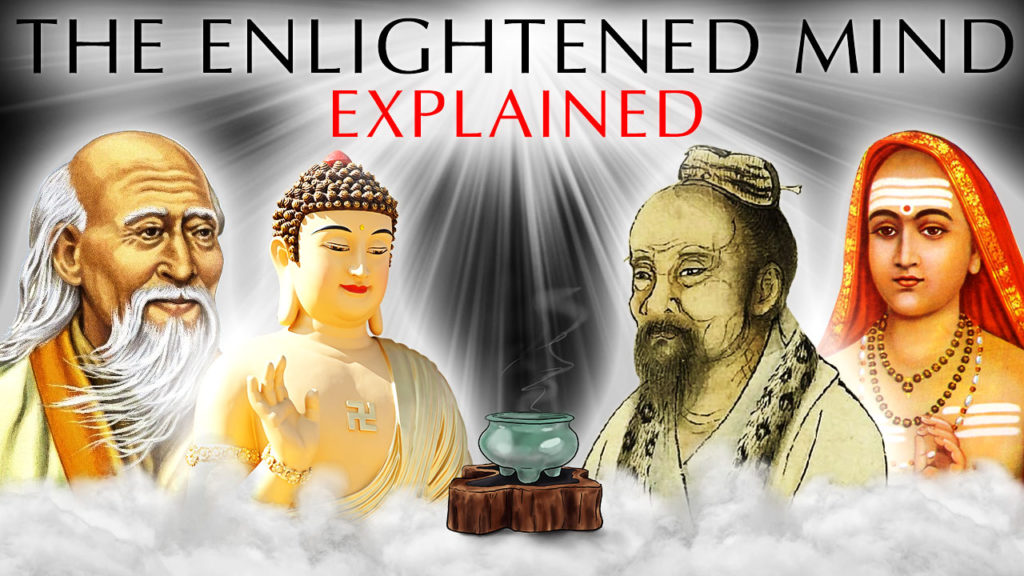
In this podcast, we will explore the mind of the great Eastern sages and how they differ from us mere mortals. To understand the difference we will unpack the research in cognitive science and also the different wisdom found in Taoism, Buddhism, and Hinduism. This podcast is a journey from the relative view of reality into the absolute view, as explored by great sages such as Zhuangzi, where partiality dissolves to reveal the true impartial oneness of life. NOTE: This site directs people to Amazon and is an Amazon Associate member. As an Amazon Associate I earn from qualifying purchases, at no additional cost to you. The pages on this website may contain affiliate links, which means I may receive a commission if you click a link and purchase something that I have recommended. This goes a tiny way towards defraying the costs of maintaining this site.
The History and Philosophy of Yoga. How Can It Help Us in a Time of Crisis?
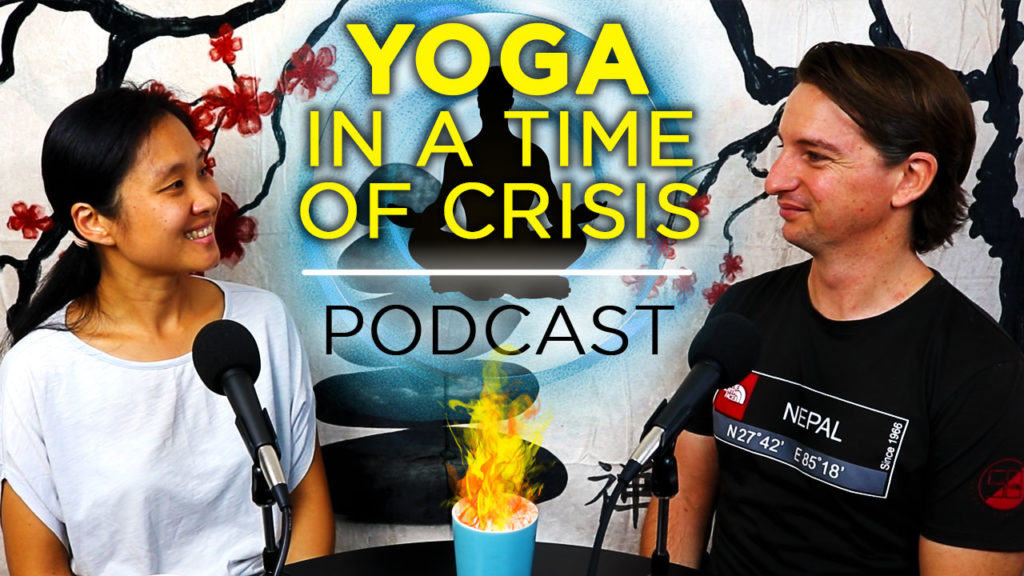
For a while I’ve been planning a podcast for my YouTube channel, but I wanted to do it right and not short-change the project. So finally I’m glad to say that my first episode of the podcast is up and I’m joined by my partner in crime and life, Gayoung, to discuss the finer points of Eastern philosophy which only a long format can provide. My podcast is about diving deep into the mystical depths of the world of Eastern spirituality. In this podcast we discuss the history and philosophy of yoga and its relevance in a time of crisis, along with a lot of other topics. And don’t worry, this podcast is just an addition to everything else I have on my channel including Enlightenment Today, The Sacred Word, Ask Jason, and my documentaries. I hope you all enjoy. NOTE: This site directs people to Amazon and is an Amazon Associate member. As an Amazon Associate I earn from qualifying purchases, at no additional cost to you. The pages on this website may contain affiliate links, which means I may receive a commission if you click a link and purchase something that I have recommended. This goes a tiny way towards defraying the costs of maintaining this site.
A Life Changing Poem That Will Change Your Perspective on Life by a Great Zen Hermit Sage
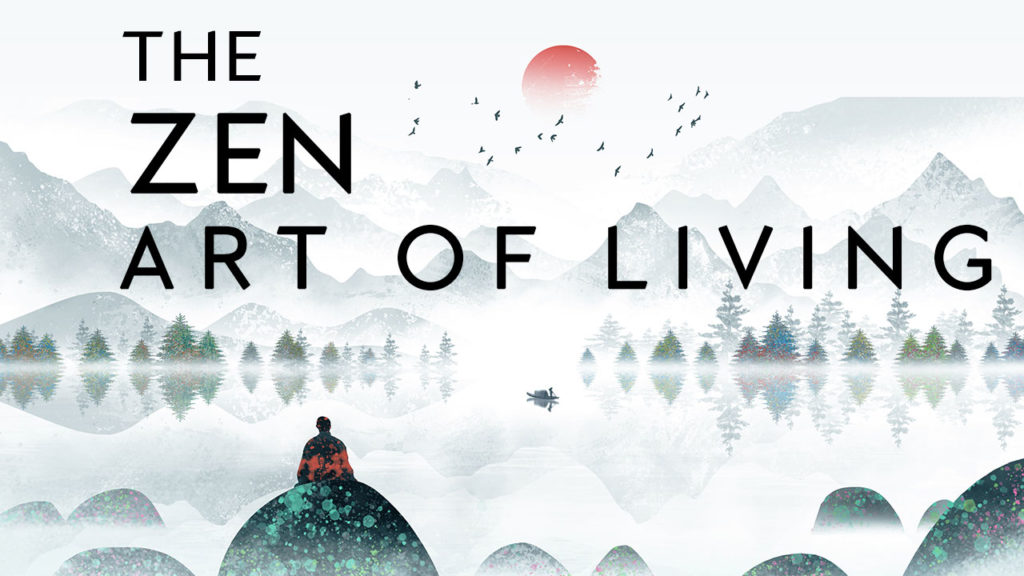
Hanshan is one of the greatest sages of Zen Buddhism and Taoism that you’ve never heard of. He is affectionately known as Cold Mountain. His poems are some of the most underrated in the world. The poems of Cold Mountain are transformative and highlight the pitfalls of society and the benefits of a living a life as a hermit, detached from the world. In this video I will share three of my favorite poems by Hanshan which are a blend of three of the greatest translations by Red Pine, Gary Snyder, and the late and great Burton Watson. NOTE: This site directs people to Amazon and is an Amazon Associate member. As an Amazon Associate I earn from qualifying purchases, at no additional cost to you. The pages on this website may contain affiliate links, which means I may receive a commission if you click a link and purchase something that I have recommended. This goes a tiny way towards defraying the costs of maintaining this site.
Why Taoism and Jainism Disagree Over the Process of Suffering and Death
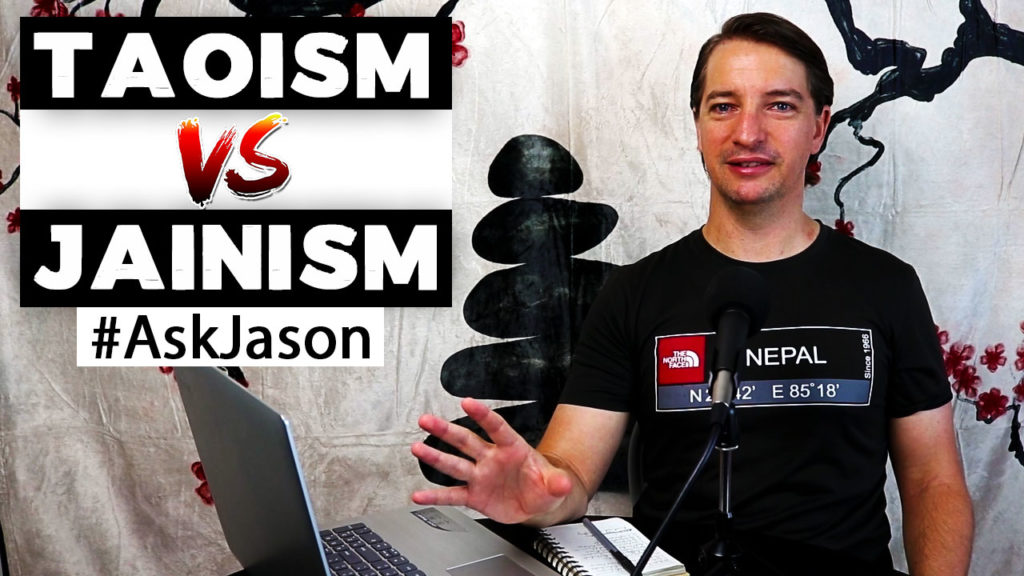
I get a host of questions via social media and through my website about the finer details of Eastern spirituality. So I decided to start a new series called Ask Jason. In this series I aim to unpack some of the great questions I receive. The question I tackle in this video is about our moral disposition when we see another being suffer. Should we intervene? Is it natural to intervene? What is our moral obligation or do we even have a moral obligation to begin with? These will be answered and much more. If you want me to answer your questions, please ask post them to my social media accounts or through my website with #AskJason. NOTE: This site directs people to Amazon and is an Amazon Associate member. As an Amazon Associate I earn from qualifying purchases, at no additional cost to you. The pages on this website may contain affiliate links, which means I may receive a commission if you click a link and purchase something that I have recommended. This goes a tiny way towards defraying the costs of maintaining this site.
Why the World is Always in Conflict

Why the World is Always in Conflict There is so much hatred in the world. So many people banding together based on group identification. Our fear of one another is so heightened that we lack the awareness to listen to one another and ultimately understand one another. Our personal view of life, based on our own beliefs and agendas, is the only perspective of life. Our personal narrative is the narrative. But it has always been this way. Our hatred and fear towards each other are nothing new. It’s an old game that we are all duped into playing. And the game is based on a lie, a lack of understanding about who we truly are and what the world really is. The truth is our perception of the world is clouded and unable to see the world as it truly is. Division and conflict are the result of a world literally going blind to the truth. The fabric of society is built on the foundation that separation is true. But is separation really true? Or is separation the heart of a tired old game that is the root cause of all the problems in the world? If our mentality of separation is true, then why does it only cause conflict? These are the questions that we need to be asking. This is the adult conversation we need to have. To explore these questions deeper we need to understand what fuels division and group identification. And that which fuels both is personal identity. An inquiry into the nature of identity is not new though. It is the core philosophy of the three main spiritual traditions of the East, namely Hinduism, Buddhism, and Taoism. It was also the focus of such philosophers as Jiddu Krishnamurti who dedicated his life to understanding the human condition similar to the quest of the Buddha. This Eastern view of exploring the validity of the individual is in stark contrast to the focus on individualism in the West which has slowly but surely become the focus of the entire world. But have we traveled in the wrong direction? This is such a vast topic that needs an entire volume to explore. But I will focus on a few specific areas that will illustrate how the problems in the world are not an external problem, but rather an inherent problem in the human condition that has never been dealt with outside of those curious souls interested in Eastern philosophical thinking. Our Identity is Limited To consider that identity is the cause of all the world’s problems, we must first understand that knowledge itself, the knowledge we all think we possess, is limited. Knowledge is limited because we are all perceiving the world subjectively, influenced from birth by our culture, religion, race, gender, nation, family, etc. Each group is training us on an individual level to identify with the group as if it defines who you truly are, which are in the end superficial identifications. The group wants you to see as they see and think as they think. Identifying with a group doesn’t allow the possibility of you knowing who you truly are because you’re a bundle of external conditioning based on group beliefs. This conditioning trains us to perceive the world with certain biases which eclipses how the world truly is. Thinking itself, as a result, becomes divisive because our thinking cuts the world up to suit our conditioned identity. Conflict can only ensue from such limited views. The limitation of knowledge creates conflict, not because we’ve identified with a group, that is only the effect, but instead because the cause of conflict is our tendency to seek security. But our perspective of security is warped and the seed of all conflict in the world. When will we learn this lesson? This wisdom has been with us for thousands of years, but we feel more comfortable in the “apparent” security we’ve built for ourselves individually, which gives us an illusory feeling of security within group mentality. But ironically this is far from security and actually is the cause of conflict. How much violence, hatred, and bloodshed will it take for us to understand that superficial boundaries don’t exist, never have and never will. The Game of Identification As the human species evolved, we were naturally part of certain groups due to the nature of biological evolution. As we started to develop culture, it was a safe bet to identify with a group to ensure our individual survival, which was then eventually superimposed onto the survival of our beliefs and the beliefs we have about ourselves and the groups we feel we belong. But this tendency towards survival no longer serves a lot of the world where our basic needs of food, clothing, and shelter are taken care of. Yet this yearning for security is the seed of conflict and basically holds us back from seeing the total picture. It is a limited view of the world. The common belief is we will find security in the family, tribe, nation, race, gender, etc. So we believe security is in division. If we identify with a certain group then this will ensure our safety and propagate our limited knowledge. Do you see the inherent flaw in this common perspective? The division itself creates insecurity. Our identification with a group creates insecurity. All battles are waged based on this illusory belief that division ensures security. We’ve drawn a line in the sand, “this is who I am and what I believe.” But the division itself is limited. Anything that is limited must inevitably create conflict. This cuts to the heart of the individual. For example, if I say “I am an individual,” it is limited. I’m only concerned with myself, which is limited. I am only concerned about the way I see the world according to my beliefs and conditioning which
My New Book Emotional Intuition for Peak Performance OUT NOW!
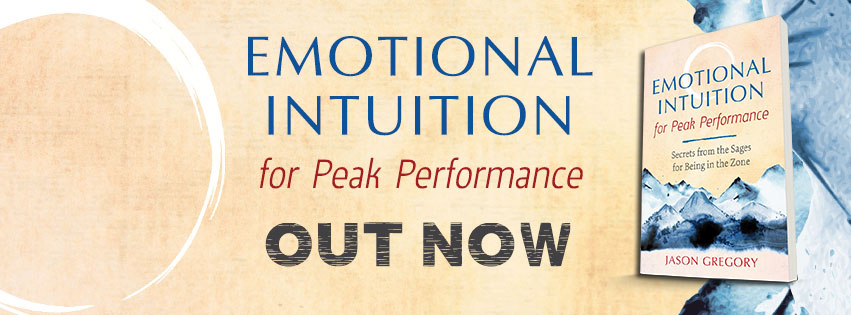
I’m excited to announce my new book Emotional Intuition for Peak Performance is out now! At the moment, both the paperback and Kindle are super cheap for all of my loyal newsletter subscribers. I want to send my heartfelt gratitude to my publisher Inner Traditions for all of their hard work on this book. They are the number one publisher in the game and I have been extremely blessed to work with such a wonderful group of people. The first week of sales is so important for any author, so I hope you all get a copy today, tomorrow or sometime in the future. Hit the following link to get your copy today https://amzn.to/2oZZdFm (affiliate link) New Jason Gregory Podcast on My New Book On one of my recent podcasts, I explore in-depth my new book Emotional Intuition for Peak Performance. How can we reach an effortless state of peak performance in our chosen fields which reverberates out into our everyday lives so that we are in harmony with the Tao? Find out! Watch below: Video on the Table of Contents of My New Book In this video, I will briefly go over each of the chapters to get you ready for a deep dive into the essence of my new book. Watch below: NOTE: This site directs people to Amazon and is an Amazon Associate member. As an Amazon Associate I earn from qualifying purchases, at no additional cost to you. The pages on this website may contain affiliate links, which means I may receive a commission if you click a link and purchase something that I have recommended. This goes a tiny way towards defraying the costs of maintaining this site.
How Siddhartha Gautama Became the Buddha
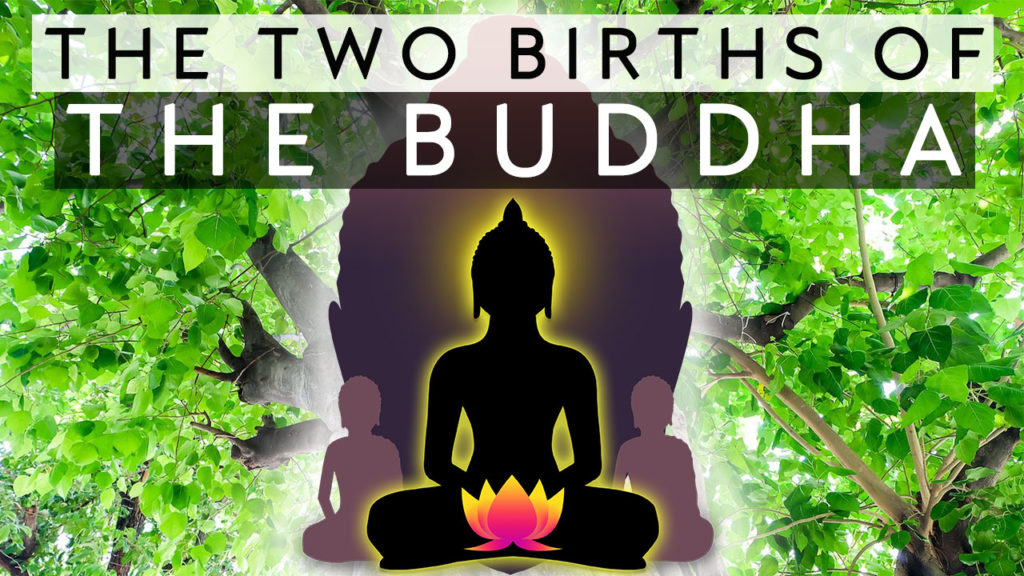
In this episode of Enlightenment Today I will explore the two births of the Buddha and why Buddha Purnima is important to celebrate. The two births are known as the Rupakaya and Dharmakaya births. I will explain the significance of both births and how they are related to the journey Siddhartha Gautama embarked on to become the enlightened Buddha. NOTE: This site directs people to Amazon and is an Amazon Associate member. As an Amazon Associate I earn from qualifying purchases, at no additional cost to you. The pages on this website may contain affiliate links, which means I may receive a commission if you click a link and purchase something that I have recommended. This goes a tiny way towards defraying the costs of maintaining this site.
